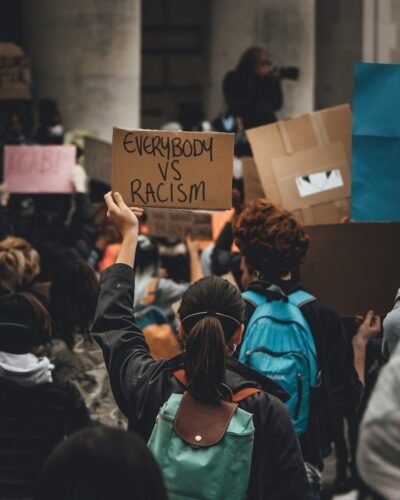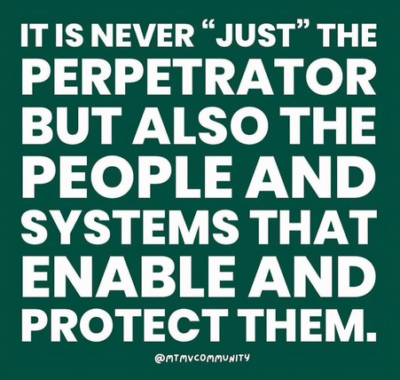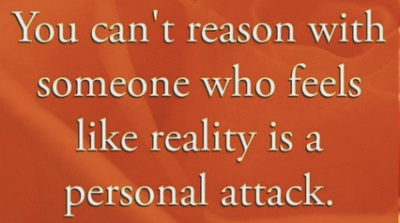💡 Pattern to Notice:Most of these women were killed not just for themselves but because they stood between power and the vulnerable—protecting m
💡 Pattern to Notice:

Photo by Arthur Edelmans/Unsplash.com
Most of these women were killed not just for themselves but because they stood between power and the vulnerable—protecting miners, children, Black voters, Indigenous rights, or simply refusing to be silent about violence, unfair practices, and injustice against vulnerable persons in society. Their deaths were intended to send a message of fear, but their lives continue to echo as testimony.
Here are just a few:
Labor & Organizing
Fannie Sellins (1872–1919)
A labor organizer with the United Mine Workers who advocated for miners’ rights, including better pay and working conditions for immigrant workers. She was shot and killed by coal company guards in Pennsylvania during a protest.Ella May Wiggins (1900–1929)
A textile mill worker and union organizer in North Carolina who fought for equal pay and safer working conditions, including for Black workers. She was assassinated by a mob of hired gunmen.- Karen Silkwood (1946–1974)
A chemical technician and union activist at the Kerr-McGee nuclear facility in Oklahoma. She became a whistleblower after discovering serious safety violations, including worker contamination and faulty fuel rods. On November 13, 1974, she was driving to meet them when her car ran off the road and she was killed. Found in her car were papers scattered—but the most critical documents she supposedly carried were missing. Her life inspired the 1983 film Silkwood starring Meryl Streep.
Anti-Lynching & Racial Justice
Elbert Williams’ wife and other women in NAACP leadership faced grave danger.
While Williams himself was killed in 1940 for helping Black people register to vote in Tennessee, his wife and other women leaders endured violent retaliation and threats that were meant to silence entire families.Mary Turner (1885–1918)
Although not a formal activist in the traditional sense, she publicly spoke out against the lynching of her husband. For her courage, she was lynched while eight months pregnant in Georgia. Her killing stands as one of the most brutal acts of political violence meant to terrorize women into silence.
Native Women Resisting Colonial Violence
Anna Mae Aquash (1945–1975)
A Mi’kmaq activist and member of the American Indian Movement (AIM). She was murdered in South Dakota, after being targeted because of her outspokenness in Indigenous rights struggles. Her death has long been linked to political violence and internal divisions fueled by government infiltration.
Civil Rights Era
Viola Liuzzo (1925–1965)
A white Detroit housewife and mother of five who joined the Selma to Montgomery marches to support Black voting rights. She was murdered by members of the Ku Klux Klan while driving Black marchers to safety.Medgar Evers’ wife, Myrlie Evers-Williams, survived—but Fannie Lou Hamer and others lived under constant death threats.
While not murdered, they remind us of how close many women leaders came to fatal political violence simply for demanding civil rights.
In remembering these women, we remember more than their deaths—we honor their voices. They spoke truth when silence was demanded. They stood on the side of the less powerful, choosing solidarity over safety. They refused to support hate, even when hate came for them. Each one stood up for women, for children, for health, for safety, and for the dignity of human well-being. Their lives remind us that justice is never gifted; it is carried forward by those willing to risk everything for the sake of others. We are called not only to mourn them but to continue the work they began.
Womanist Film Recommendations:
Silkwood (1983)
Meryl Streep as Karen Silkwood
Based on the true story of Karen Silkwood, a nuclear plant worker and whistleblower who died in a mysterious car crash while carrying evidence of corporate wrongdoing. Her death is widely believed to have been politically motivated.Mississippi Burning (1988) (fictionalized)
While the film focuses on the 1964 murders of civil rights workers Goodman, Chaney, and Schwerner, it indirectly evokes the climate of terror that also claimed women’s lives (like Viola Liuzzo, murdered by the Klan in 1965). Liuzzo herself doesn’t appear in this film but is remembered in documentaries.
Freedom Song (2000, TV film) – While fictionalized, it reflects the danger women faced in the Civil Rights Movement. It evokes the memory of women like Viola Liuzzo (white ally murdered in Selma) and the countless Black women targeted with violence for voter registration and marches.
Home of the Brave (2004, documentary) – While focused on Viola Liuzzo, it also highlights the climate of violence that imperiled Black women like Jimmie Lee Jackson’s mother, Viola Jackson, and others in the movement.
These highlight women who endured intimidation, retaliation, or hardship but lived to tell their stories.
Norma Rae (1979)
Sally Field as Norma Rae (based on Crystal Lee Sutton)
Inspired by a North Carolina textile worker who stood up to unsafe conditions and unfair labor practices, famously holding a “UNION” sign in her mill. She survived, but faced job loss and retaliation.Iron Jawed Angels (2004)
Hilary Swank as Alice Paul, Frances O’Connor as Lucy Burns
A dramatization of the suffragists who fought for women’s right to vote in the early 20th century. Many were jailed, beaten, and force-fed—but survived to see the 19th Amendment ratified.Harriet (2019)
Cynthia Erivo as Harriet Tubman
Biographical film about Harriet Tubman’s heroism in freeing enslaved people via the Underground Railroad. Tubman lived a long life despite constant mortal danger.
🎥 Documentaries Honoring Women Who Were Killed
Home of the Brave (2004) – Documentary about Viola Liuzzo, murdered in 1965 after the Selma marches.
Incident at Oglala (1992) – Covers the climate of violence around the American Indian Movement, including the murder of Anna Mae Aquash in 1975.
The Rosa Parks Story (2002) – Angela Bassett portrays Rosa Parks, showing her pivotal role in sparking the Montgomery Bus Boycott. While Parks wasn’t killed, she endured job loss, constant death threats, a
nd exile from the South.
Selma (2014) – Includes portrayals of Black women leaders like Coretta Scott King, Annie Lee Cooper (played by Oprah Winfrey), and Diane Nash. These women endured brutality and terror but survived to see victories.
Fannie Lou Hamer: Stand Up (various documentaries, 2010s) – Captures the life of Hamer, who was nearly beaten to death in jail for organizing Black voter registration. She lived, but carried lifelong injuries.
The Immortal Life of Henrietta Lacks (2017, HBO) – While Henrietta herself was not killed for activism, her daughter Deborah Lacks (played by Oprah Winfrey) became an outspoken advocate for medical justice, revealing how exploitation of Black women’s bodies intersects with systemic violence.
🎥 Documentaries Highlighting Black Women Activists
Freedom Riders (2010, PBS) – Tells the story of women like Diane Nash, who organized Freedom Rides under threat of mob violence.
Eyes on the Prize (1987, series) – Covers women like Amelia Boynton Robinson, Septima Clark, and Fannie Lou Hamer.
Honorable Mentions
🎥 What The Long Walk Home Is
The film is set during the 1955–1956 Montgomery Bus Boycott in Alabama. Wikipedia+1
Whoopi Goldberg plays Odessa Cotter, a Black woman who works as a maid/nanny for Miriam Thompson (played by Sissy Spacek) whose family is white. Wikipedia+1
Odessa participates in the boycott, meaning she walks to work rather than ride the segregated buses. Miriam becomes aware of the toll this takes on Odessa and offers to drive her some days. This leads to tensions in Miriam’s life (with her husband, with social pressure) as she takes a stand. Wikipedia+2Welcome+2
💡 Included Because…..
Though The Long Walk Home isn’t about a woman being killed for speaking out, it’s very much about ordinary people taking moral risks. It shows how doing something “small” like giving a ride or walking to work becomes a powerful political act in a system built to suppress dissent.
It highlights Black women’s activism in the Civil Rights Movement not just through big heroes but through everyday resistance and support from allies.
It underscores that speaking out, or siding with justice, often came with social backlash, danger, and cost — all central themes to what you’ve been exploring.
Hidden Figures (2016)
Taraji P. Henson plays Katherine Johnson, a brilliant mathematician who worked at NASA.
Alongside her colleagues Dorothy Vaughan (Octavia Spencer) and Mary Jackson (Janelle Monáe), she helped calculate the trajectories that made it possible for John Glenn to orbit the Earth and later for astronauts to reach the Moon.
The film is based on the true stories of Black women mathematicians whose work was essential to the U.S. space program during the Space Race, yet their contributions were hidden for decades.
💡 Hidden Figures sits beautifully with the list of women activists and truth-tellers we’ve been discussing: it highlights how Black women changed history in the face of racism, sexism, and systemic erasure—not through marches or protests alone, but through intellect, persistence, and excellence.

